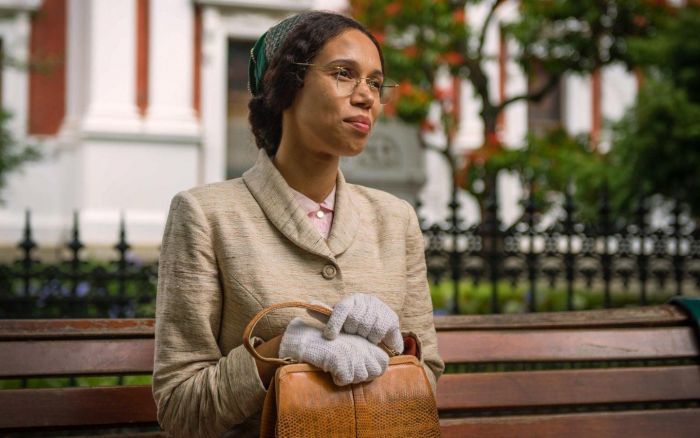When The Doctor met Rosa Parks

After raving so much about the new season of Doctor Who and its first female Doctor (played by Jodie Whittaker), we quickly fell behind on the exploits of the Thirteenth Doctor and her companions. In fact, we only just watched the third episode, titled “Rosa,” this week.
When I first read that The Doctor would be encountering civil rights icon Rosa Parks in Montgomery, Alabama, I was a little… concerned. While Doctor Who has never shied away from tackling social issues, it’s not exactly the most subtle of shows. While that lack of subtlety is often part of its charm, would having the Doctor and her companions help ensure that history proceeds correctly — that Parks refuses to give up her seat on a bus to a white passenger, thus sparking the American civil rights movement — somehow cheapen or make light of a pivotal moment in history?
“Rosa” does get a little heavy-handed at times; for example, playing Andra Day’s “Rise Up” during Parks’ protest and arrest seemed a little on-the-nose, like a blatant attempt to ensure that viewers were feeling the right emotions during the scene. But overall, it was a really strong episode, blending just the right amounts of humor, drama, and pathos in an engaging story about the evils of racism, and the need for good people to stand up to face it (or stay seated, as the case may be).
Some other random thoughts:
- The Doctor’s little exchanges about her possibly being Banksy were the episode’s funniest and most delightful scenes, and injected a welcome bit of whimsy in an otherwise heavy episode (see the next point).
- You knew the stakes were real as soon as the Doctor’s companion Ryan, who is black, got punched by a white guy after Ryan tried to do a good deed (returning a glove that the man’s wife had dropped). The whole episode seemed to hold its breath in the scene, and the assault was as shocking an act of violence as any I’ve seen in a Doctor Who episode.
- The episode did a great job of evoking a sense of oppression, whether it was the way the patrons in the “whites only” restaurant stared at Ryan and Yasmin (who was assumed to be Mexican) or the police officer that followed the Doctor’s troupe. Here’s how well it worked: I became genuinely concerned for Ryan when it became clear he’d have to walk back home by himself at night. I kept expecting to see a scene where he’s being chased by an angry mob.
- One scene that could’ve been heavy-handed but actually wasn’t is when Ryan and Yasmin discuss how far the world has come since the ’50s, and how much progress remains to be made. What could’ve been a scene where characters pontificate about stuff that viewers need to know — i.e., the opposite of “show, don’t tell” — works, mainly because I Ryan and Yasmin are such engaging characters in their own right.
- On a sidenote, I wouldn’t be surprised if Ryan and Yasmin’s friendship evolves beyond mere friendship. If and when that happens, I am here for it. (But please, no spoilers — we’re still quite a ways behind.)
- The episode’s most powerful moment occurs when Graham, the Doctor’s third companion (and Ryan’s step-grandfather), realizes that, in order for history to proceed correctly, he has to be the white person for whom Rosa Parks has to give up her seat. His look of panic at having to essentially be a figurehead of institutionalized racism and his anguished plea to the Doctor (“I don’t want to be part of this”) were heartbreaking.
- I suspect we’ll see Krasko, the time-travelling white supremacist who sought to prevent Parks’ courageous protest, again. The way in which he was dispatched seemed too clean and perfunctory. Also, it was a nice change of pace that his villainous master plan didn’t involve killing Parks outright — he couldn’t, for reasons explained in the episode — but rather, simply trying to nudge history in a different direction.
I don’t know if “Rosa” ranks with the very best of Doctor Who (e.g., “Blink,” “Silence in the Library/Forest of the Dead,” “Vincent and the Doctor,” “The Girl Who Waited”) but it was definitely a very solid and enjoyable episode. Furthermore, it showed that the new season can pack an emotional wallop just as well as previous ones, and that it can address heavy issues without sacrificing too much of what makes Doctor Who so enjoyable in the first place.